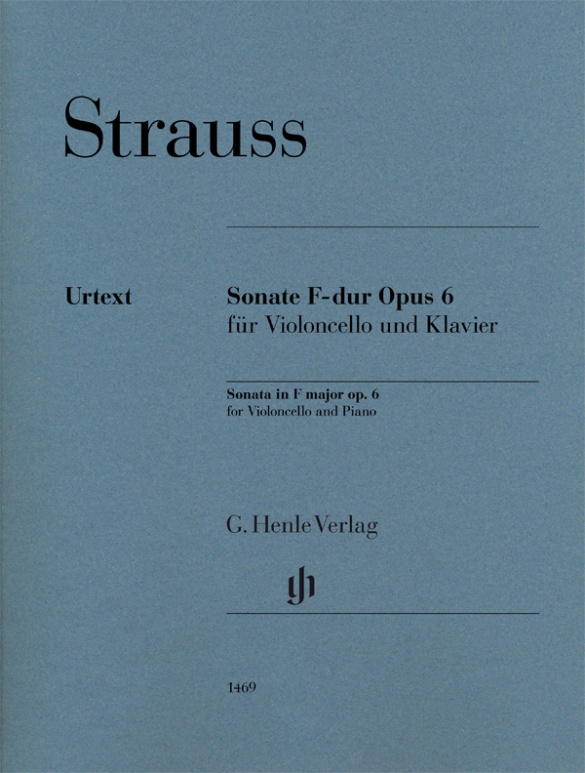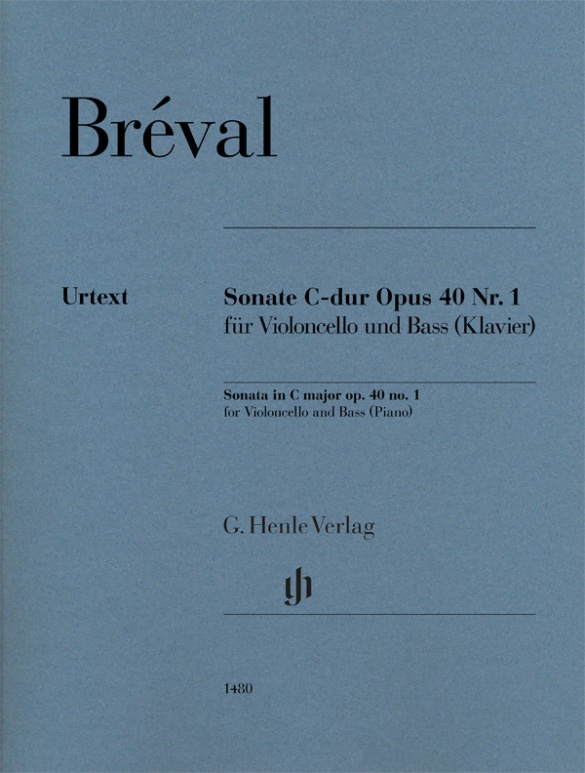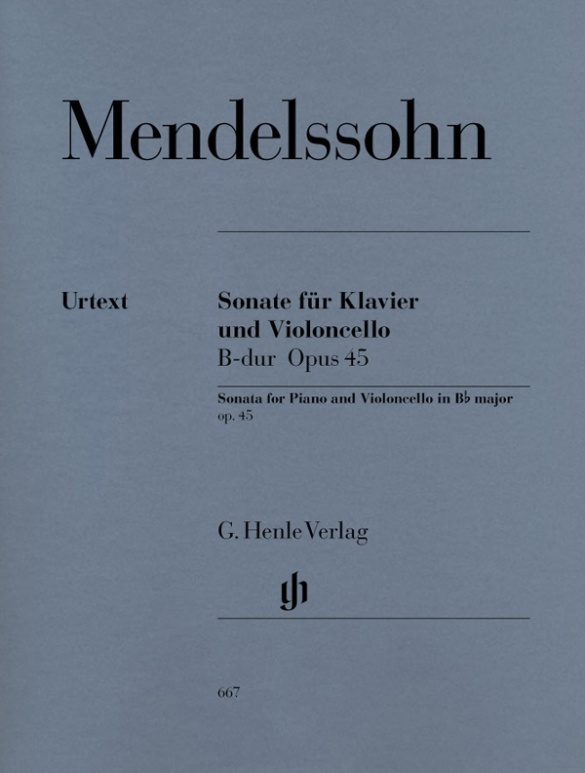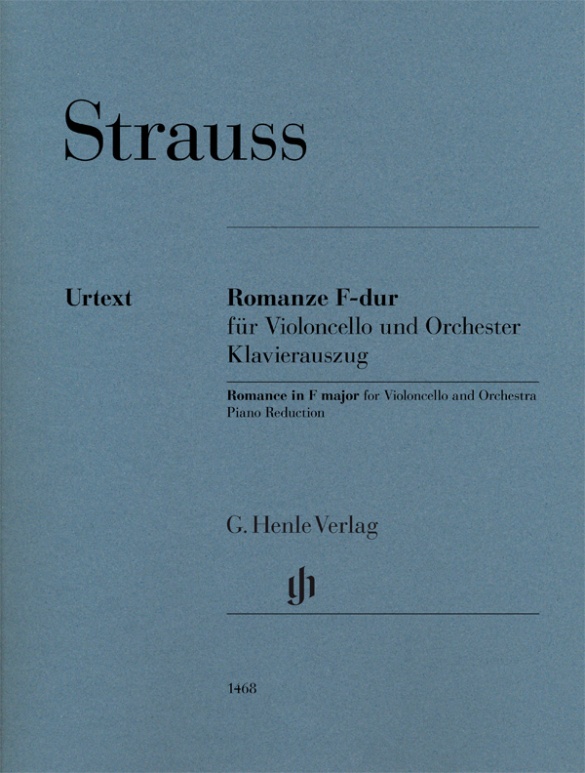

Richard Strauss
Violoncello Romance F major
Just a few months after completing his Cello Sonata op. 6, Strauss composed another work for this instrument: a Romance for cello and orchestra, which remained unpublished during his lifetime. According to the autograph manuscript, the composition was finished on June 27, 1883, and Strauss also prepared the piano reduction himself. The Romance is regarded as one of Strauss’ most mature youthful works, though it was long overshadowed by the cello sonata, despite several quite successful performances given by the then-famous principal cellist of the Munich Court Orchestra, Hanuš Wihan. Only since the posthumous first edition of 1986 has the music world been rediscovering this striking work, which now also appears in a Henle Urtext edition.
mws-henle.cms.title-works.headline
mws-henle.cms-product-detail.composer-headline
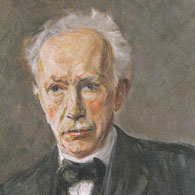
Richard Strauss
One of the most important opera composers of the twentieth century. His oeuvre comprises fifteen operas, nine symphonic poems, instrumental concerti, and a large number of songs. His stage works are marked by their great variety of genre and subject matter.
| 1864 | Born in Munich on June 11, the son of Franz Joseph Strauss, principal horn player in the court orchestra. Receives instruction in piano, violin, and composition. |
| 1885–86 | Conductor at the Meiningen Court Orchestra, initially under the tutelage of Hans von Bülow. |
| 1886 | Music director at the Munich Court Theatre. |
| 1887–1903 | He increasingly devotes himself to the symphonic poem, including “Tod und Verklärung” (“Death and Transfiguration”) in C minor, Op. 24; “Till Eulenspiegels lustige Streiche” (“Till Eulenspiegel’s Merry Pranks”) in F major, Op. 28; “Also sprach Zarathustra,” Op. 30; “Symphonia Domestica” in F major for large orchestra, Op. 53. |
| 1889–94 | Music director in Weimar. First Kapellmeister in Munich in 1894, in Berlin at the Royal Court Opera from 1898–1910. |
| 1905 | Breakthrough with the premiere of “Salome,” Op. 54. |
| 1906 | Beginning of his collaboration with Hugo von Hofmannsthal on the harmonically progressive opera “Elektra,” Op. 58, premiered in Dresden in 1909. |
| 1911 | Sensational premiere in Dresden of “Der Rosenkavalier,” Op. 59, which refers back to operatic tradition and makes him the leading German opera composer. He decides to dedicate himself primarily to operas: “Ariadne auf Naxos,” Op. 60 (1912); “Intermezzo” Op. 72 (1924); “Die ägyptische Helena,” Op. 75 (1928); “Arabella,” Op. 79 (1933); “Die schweigsame Frau,” Op. 80 (1935); “Friedenstag,” Op. 81, and “Daphne,” Op. 82 (1938); “Die Liebe der Danae,” Op. 83 (1944). |
| 1919 | Director of the Vienna State Opera. Premiere there of “Die Frau ohne Schatten,” Op. 65. |
| 1931 | Collaboration with Stefan Zweig. |
| from 1944 | Composition of his last works: Metamorphosen, for 23 solo strings, Oboe Concerto in D major, Four Last Songs. |
| 1949 | Death in Garmisch-Partenkirchen on September 8. |
mws-henle.cms-product-detail.author-headline

Peter Jost (mws-henle.person.role.HERAUSGEBE)
Dr. Peter Jost, born in 1960 in Diefflen/Saar, read musicology, German and comparative studies at Saarland University in Saarbrücken. He did his PhD in 1988 with a thesis on Robert Schumann’s Waldszenen.
From November 1991 to April 2009 he was a research associate at the Richard Wagner Complete Edition in Munich, and since May 2009 has been an editor at G. Henle Publishers. His Urtext editions comprise predominantly French music of the 19th and 20th centuries, including works by Lalo, Saint-Saëns and Ravel.
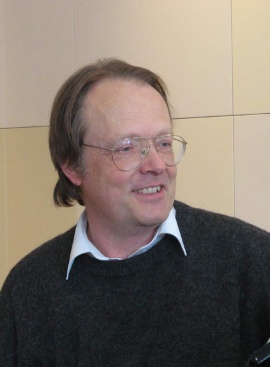
Johannes Umbreit (mws-henle.person.role.KLAVIERAUS)
Prof. Johannes Umbreit studied the piano at the Musikhochschule in Munich. From 1987 onwards he was a regular accompanist at courses given by Wolfgang Schneiderhan, Thomas Brandis, Ljerko Spiller, Igor Ozim, Olga Woitowa, Ernő Sebestyén, Walter Nothas, F. Andrejevsky, Denis Zsigmondy and Zakhar Bron amongst others. He has appeared in numerous radio and TV broadcasts and plays chamber music with members of the Bavarian State Orchestra, the Munich Philharmonic Orchestra and the Bavarian Radio Symphony Orchestra.
He is on the jury of different international competitions and has been invited to several international music festivals. Umbreit was a teacher for almost ten years at the Musikhochschule in Munich and at the same time a lecturer for chamber music and piano accompaniment at the Richard Strauss Conservatory. Since 2008 he has been a lecturer at the Hochschule für Musik und Theater München. As the long-serving managing director of the Richard-Strauss-Gesellschaft, he was made an honorary member of the board in 2009. In May 2011, the Bavarian Minister of Culture appointed Johannes Umbreit an honorary professor of the Hochschule für Musik und Theater München on the suggestion of its academic senate.
Product Safety Informations (GPSR)

G. Henle Verlag
Here you can find the information about the manufacturer of the product.G. Henle Verlag e.K.
Forstenrieder Allee 122
81476 München
Germany
info@henle.de
www.henle.com
Auch hier gilt: … wer sich seine Bibliothek aufbaut, möge zu Henle greifen. Dort sind auch die nicht wenigen Druckfehler von Schott korrigiert.
ESTA-Nachrichten, 2022推荐
autogenerated_cross_selling
本书目其他版本
本书目其他版本


